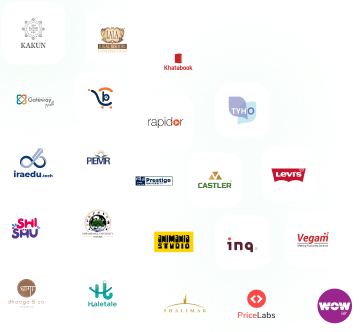WordPress vs Laravel are two of the most popular platforms in the world of web development, but they serve different purposes. WordPress is a powerful content management system (CMS), while Laravel is a PHP framework designed for developing custom web applications. This comparison will break down their features, advantages, and use cases to help you decide which is the better choice for your project.
What is WordPress?
WordPress is an open-source CMS, primarily used for creating websites, blogs, and eCommerce platforms. It is known for its ease of use and extensive plugin ecosystem. WordPress allows users to create a website without needing to write code, making it ideal for non-technical users and developers alike.
Key Features of WordPress:
User-Friendly: Drag-and-drop interface and easy-to-use dashboard.
Themes and Plugins: Thousands of pre-built themes and plugins for easy customization.
SEO-Friendly: Built-in tools and plugins like Yoast SEO for easy search engine optimization.
Community Support: Large community of users and developers offering support, tutorials, and resources.
Scalable: Handles small to medium-sized websites and blogs easily.
What is Laravel?
Laravel is a PHP web framework that provides a set of tools and resources to help developers build custom web applications quickly. Laravel emphasizes clean, readable code, and comes with built-in features like authentication, routing, and database management. It is ideal for creating more complex, custom web applications.
Key Features of Laravel:
MVC Architecture: Follows the Model-View-Controller architecture for a clean separation of concerns.
Built-in Tools: Features like Eloquent ORM, Blade templating engine, and a powerful routing system.
Security: Laravel comes with built-in tools to handle authentication, encryption, and more.
Artisan CLI: Command-line interface for speeding up common tasks.
Modular: The framework is highly extensible and allows you to build custom solutions.
WordPress vs Laravel: A Comparison
1. Ease of Use - WordPress vs Laravel
WordPress:
WordPress is incredibly user-friendly, especially for non-developers. The platform comes with a visual editor, pre-designed themes, and plugins that make building a website fast and easy without writing any code. This makes it a go-to choice for users looking to create websites or blogs without much technical knowledge.
Laravel:
Laravel, on the other hand, is geared toward developers. It requires a solid understanding of PHP and web development concepts. Laravel provides more control over your application, but building a website from scratch can be time-consuming, and the learning curve can be steep for beginners.
Winner: WordPress (for ease of use)
2. Customization and Flexibility - WordPress vs Laravel
WordPress:
WordPress is highly customizable via themes and plugins, but you're still somewhat limited to what has been pre-built by the community. For more advanced customization, developers can modify code, but it requires knowledge of PHP, CSS, and JavaScript. The ecosystem allows for relatively easy customizations for blogs, eCommerce stores, and business websites.
Laravel:
Laravel offers full flexibility, as it's a framework, not a CMS. Developers can create custom solutions for any project. You have complete control over the structure and functionality of your application. Laravel is the better option if you need a tailored web application, such as a custom eCommerce platform or a SaaS application.
Winner: Laravel (for full customization)
3. Performance and Scalability - WordPress vs Laravel
WordPress:
WordPress websites can scale well, but performance can decline as the site grows, especially if it's not properly optimized. For large-scale websites, you may need to invest in advanced caching solutions and optimize your database. WordPress works well for small to medium-sized websites but may require extra effort for larger projects.
Laravel:
Laravel is built for scalability. Since it’s a framework, developers can optimize and build applications with performance in mind from the start. It’s ideal for large-scale applications with high traffic or complex features, and it allows for more efficient resource management and custom optimizations.
Winner: Laravel (for better scalability and performance)
4. Development Speed - WordPress vs Laravel
WordPress:
WordPress offers quick development for basic websites or blogs due to its pre-built templates, themes, and plugins. For more complex features, you may need custom development, but WordPress still tends to be faster for simple projects because you don’t need to code everything from scratch.
Laravel:
Laravel has built-in tools and features like the Blade templating engine, Eloquent ORM, and Artisan CLI that make development faster compared to starting from scratch. However, for complex custom applications, Laravel can take longer to develop, as it requires custom coding and setup.
Winner: WordPress (for faster development of basic sites)
5. Cost - WordPress vs Laravel
WordPress:
WordPress is free to use, but you’ll need to pay for hosting, premium themes, and plugins. Development costs can increase if you need a custom theme or plugin, but it’s still generally more affordable than Laravel for smaller projects. Many hosting providers offer optimized WordPress hosting at reasonable prices.
Laravel:
Laravel is also free, but development costs can be higher since it requires a developer who is proficient in PHP and the Laravel framework. Laravel is ideal for complex, custom projects, but that custom development comes at a cost. Laravel projects also require more advanced hosting configurations, which could increase your expenses.
Winner: WordPress (for lower initial costs)
6. Security - WordPress vs Laravel
WordPress:
WordPress is generally secure, but its popularity makes it a common target for hackers. Regular updates and secure hosting are necessary to keep your WordPress site secure. There are also many security plugins available to help protect your site, like Wordfence and Sucuri.
Laravel:
Laravel comes with built-in security features, including protection against common vulnerabilities such as SQL injection, cross-site scripting (XSS), and cross-site request forgery (CSRF). Since it’s a custom framework, developers can implement additional security measures based on the project’s needs.
Winner: Laravel (for built-in security features)
7. SEO (Search Engine Optimization) - WordPress vs Laravel
WordPress:
WordPress is inherently SEO-friendly, and with plugins like Yoast SEO, it’s easy to optimize your website for search engines. WordPress allows you to manage metadata, alt text, sitemaps, and other key SEO components with ease.
Laravel:
Laravel does not have built-in SEO tools, but it allows for full control over how you implement SEO for your web application. Developers need to manually implement SEO features, which provides more flexibility but also requires additional work.
Winner: WordPress (for ease of SEO management)
8. Community and Support - WordPress vs Laravel
WordPress:
WordPress has a massive global community and tons of resources, tutorials, forums, and third-party services. With such a large community, you’ll easily find solutions to common problems and get support from fellow users and developers.
Laravel:
Laravel also has an active community and an extensive set of resources. While it’s smaller than WordPress, Laravel’s developer-focused ecosystem provides excellent documentation, community support, and tutorials. However, since it's more developer-centric, it may not be as easy to find non-technical solutions.
Winner: WordPress (for a larger community)
Feature Comparison Table:
| Feature | WordPress | Laravel |
|---|---|---|
| Ease of Use | Very easy for non-developers | Requires knowledge of PHP and web development |
| Customization | Limited to themes and plugins | Fully customizable, full control over development |
| Performance and Scalability | Moderate scalability with optimization | Highly scalable, optimized for large applications |
| Development Speed | Fast for simple websites | Faster for complex applications with custom needs |
| Cost | Free, but requires hosting and plugins | Free, but needs development costs and advanced hosting |
| Security | Needs regular maintenance | Built-in security features |
| SEO | Built-in SEO, with plugins | Manual SEO implementation |
| Community and Support | Large, easy to find resources | Strong developer community |
Which is Better for Your Project?
| Criteria | Best Choice |
|---|---|
| Ease of Use | WordPress |
| Customization | Laravel |
| Performance and Scalability | Laravel |
| Development Speed | WordPress (for simple sites) |
| Cost | WordPress |
| Security | Laravel |
| SEO | WordPress |
| Community and Support | WordPress |
Final Verdict on WordPress vs Laravel
Choose WordPress if you need to create a website quickly, easily, and affordably, especially for blogs, small business websites, or eCommerce stores. Get in touch
Choose Laravel if you’re building a custom web application or need advanced features, scalability, and full control over your project’s functionality and security.
FAQs: WordPress vs Laravel
1. Can WordPress and Laravel be used together?
Yes, you can integrate Laravel and WordPress in a project, using WordPress as the CMS and Laravel for custom application features. They can communicate through APIs.
2. Which is better for an eCommerce website?
For simple eCommerce websites, WordPress with WooCommerce is often sufficient. However, for custom eCommerce solutions with complex features, Laravel is the better choice.
3. Is Laravel harder to learn than WordPress?
Yes, Laravel requires knowledge of PHP and web development principles, whereas WordPress is much easier for beginners due to its user-friendly interface.
Choosing between WordPress and Laravel depends on your project requirements. If you're building a content-driven website or need fast development with minimal custom coding, WordPress is the way to go. However, if you require full control and a custom-built application, Laravel is a powerful framework for building complex and scalable solutions.
Follow us on Facebook to know more about us.
The world’s First zero commission platform
Hire tech partners effortlessly
 If you're a non-tech founder looking for an agency or a tech founder looking for engineers.
If you're a non-tech founder looking for an agency or a tech founder looking for engineers. You can get your 5 best matches from 2800 in 5 mins, with 1000 data points tracked.
You can get your 5 best matches from 2800 in 5 mins, with 1000 data points tracked. Connect directly with no credit card needed!
Connect directly with no credit card needed!
You’re just a click away from the best talent.


